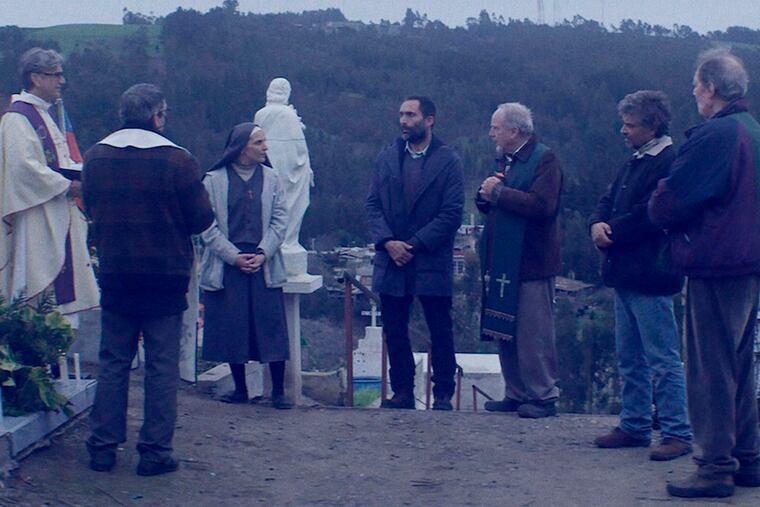'The Club': Gleefully twisted satire of organized religion
It's hard to find the right word to describe writer-director Pablo Larraín's The Club, a gleefully twisted satire about organized religion set in a group home for disgraced priests on the Chilean coast.

It's hard to find the right word to describe writer-director Pablo Larraín's The Club, a gleefully twisted satire about organized religion set in a group home for disgraced priests on the Chilean coast.
It's shocking, confrontational, violent, sickening, and enraging, as it details the kind of vile acts committed by these clergymen, including child sexual abuse.
Yet it treats the material with such intelligence and depth, it also manages to be tragic and heartbreaking.
Larraín, one of the most savage and insightful satirists in Latin American cinema, really puts the boot in by making the film riotously funny. We can't but enjoy the movie and its oddball characters - which makes us somehow complicit in their crimes.
The story begins with a series of tranquil scenes: We watch as four middle-age housemates and a woman who seems to be their housekeeper go about their daily routine. One contemplates the sea, another takes the dog for a walk, while a third putters about in the living room. They eat together. They seem content.
For all we know, the housemates are all brothers, or four retired professors.
There's a bit of excitement when the woman enters the dog into a local race.
But we notice there's something off about the arrangement when the four men watch the race from a long distance. They seem afraid to join the crowd.
As we find out when a new resident joins the household, the men are not allowed to have any interactions with the locals. These men aren't retirees living out an ideal life on the coast, they are priests sent here to live in quiet shame.
The woman, a nun named Monica (Antonia Zegers), isn't their servant, but their jailer - and sometime friend.
We learn more about the house when a priest named Father Garcia (Marcelo Alonso) brings a new resident to the home. Mateo Ramírez (Alejandro Sieveking) is as gray, nondescript, and skittish as his new housemates. And he's hostile: He tries to explain that he doesn't belong with a group of perverts and criminals.
Just then, we hear a man outside call Mateo's name.
It seems at least one of the locals knows him from before - back when he had a parish of his own. A deranged destitute man-child named Sandokan (Roberto Farías), the local, describes with gruesome detail how Mateo molested him as a child.
That's when things start to get strange ... and very violent.
A form of cinematic shock treatment, The Club is the perfect follow-up to Larraín's Pinochet Trilogy - Tony Manero, Post-Mortem, and No - that addressed more directly the political and social corruption that took hold of Chile during Augusto Pinochet's dictatorship.
Not since Luis Buñuel has a filmmaker used comedy with such deadly intent.
THE CLUB
Directed by Pablo Larraín. With Roberto Farías, Antonia Zegers, Alfredo Castro, Alejandro Goic. Distributed by Music Box Films.
Running time: 1 hour, 38 mins.
Parent's guide: not rated (violence, profanity, adult themes).
Playing at: Ritz at the Bourse.